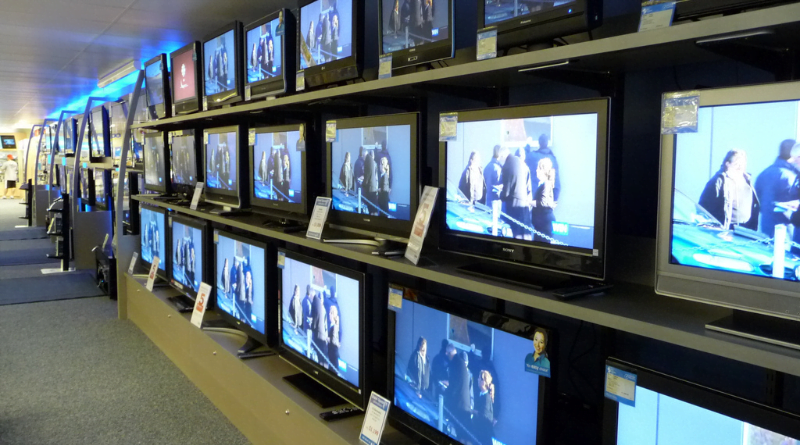
The 20th century’s most revolutionary invention, television, has transformed not only how we entertain ourselves but also how we live our daily lives. We will examine the development, influence, and importance of television from its infancy to the streaming era in this in-depth guide. This article is your best source if you’re interested in history, technology, or you want to know how television has influenced culture.
The Origin of Television: A Look Back at the First Years of Television
Since its inception in the late 1920s, television has come a long way to become what it is today. To transmit moving pictures over the airwaves was the initial goal of pioneers and inventors. Philo Farnsworth, who is frequently credited with creating the first fully functional electronic television, was one of the key figures in this journey. His inventions served as the starting point for modern televisions.
Television’s Golden Age: From monochrome to colorful entertainment
The television industry reached its height in the 1950s and 1960s. Families gathered in front of their televisions to watch programs like “I Love Lucy,” “The Twilight Zone,” and “The Ed Sullivan Show.” The switch from black and white to color TV gave entertainment a new dimension. The rise of legendary figures like Elvis Presley and The Beatles, who made their marks through television appearances, was another phenomenon of this time period.
The Social Impact of Television on Culture and Society
Television has never just been a means of entertainment. It has significantly influenced how our culture and society are today. Television has been a potent medium for spreading information and swaying public opinion, from the civil rights movement to political debates. Additionally, it has been crucial in removing gender and racial barriers and showcasing various viewpoints.
The Cable TV Revolution: More Channels and Options
The cable TV revolution of the 1980s and 1990s gave viewers a wide range of channels and content choices. During this time, viewers were first exposed to 24-hour news networks like CNN as well as specialized sports, music, and lifestyle channels. Every household now requires a remote control because it gives viewers the freedom to choose what they want to watch.
Television Transitions to Digital via the Internet and Streaming Services
Television underwent another transformation when the internet was introduced. On-demand content was introduced to our screens by streaming services like Netflix, Amazon Prime, and Hulu, upending conventional broadcasting. The option to binge-watch entire seasons and films was now available to viewers. The decline of cable TV subscriptions and the beginning of cord-cutting coincided with this.
The Rise of Smart TVs: Smarter Television
The emergence of Smart TVs with internet connectivity and app stores can be attributed to the twenty-first century. These TVs allowed users to access social media, play games, and use a variety of apps in addition to streaming content. The viewing experience was further improved by the incorporation of voice assistants like Alexa and Google Assistant.
Television in Your Pocket: Television in the Digital Age
Television has become more portable than ever as smartphones have become commonplace. Users were able to watch their preferred shows and films on the go thanks to mobile apps from networks and streaming services. Additionally, social media sites like YouTube and TikTok revolutionized the process of creating content by making it possible for anyone to do so.
What Lies Ahead for Television’s Future?
Television is still developing quickly. Now a days, 4K resolution and high definition are the norm, giving viewers images that are incredibly clear. With their immersive storytelling, virtual reality (VR) and augmented reality (AR) are poised to revolutionize the way we watch television. Algorithms for recommending content are becoming more intelligent and can now adapt to user preferences.
Television’s Influence on Advertising: Product Placements, Commercials, and More
Since its inception, television has been a major force in advertising. Sponsorship agreements, product placements, and advertisements have all been important sources of funding for television programming. Television advertising is now more effective than ever thanks to the rise of targeted advertising, which enables businesses to precisely target their ideal audience.
The Cultural Impact of Television: From Iconic Characters to Memorable Scenes
Our culture has been forever changed by the countless iconic characters and memorable moments that television has produced. Television has the ability to stoke discussions, debates, and fan communities, from Walter White in “Breaking Bad” to the “Game of Thrones” phenomenon.
A cultural, technological, and entertainment juggernaut, television has evolved from its infancy as an experimental curiosity. It has shaped societies, entertained generations, and left an imprint on our lives from its humble beginnings to the streaming era. Television is still evolving as we move into the future. Television is positioned to continue engrossing and connecting us in ways we can’t yet imagine with technology and creativity as its allies.
We have examined the fascinating history of television, its importance to culture, and its influence on daily life in this thorough guide. Television has something to offer for everyone, whether you’re a history buff, a tech whiz, or just a fan of superb storytelling. Let’s celebrate the medium that has brought the world to our screens and brought us together in shared moments of laughter, tears, and reflection as we continue to witness its evolution.



